Controversial issues
The legacy of the past and its impact on the present, as well as the process of interpretation by which accounts of the past are constructed, mean that many topics studied in history may carry an emotional charge. Certain events or developments may have a particular relevance – or resonance – for some young people and their communities, but carry different overtones (or none at all) for others. This section contains advice and resources for teachers who are tackling potentially sensitive topics that may generate emotionally charged responses and explores the issues that may arise as topics studied in the classroom intersect with personal, family and community histories. The materials here will help teachers to reflect carefully on the appropriateness of their objectives and to develop effective teaching strategies for promoting sensitive and productive kinds of discussion, especially when both the past and its implications for the present are disputed. They highlight the risks involved and the ways in which they can be mitigated, and include guidance and advice related to the Prevent Strategy.
-

Shaping what matters: Year 9 decide why we should care about the Windrush scandal
ArticleClick to view -
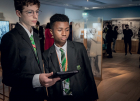
Why do we continue to study the Holocaust?
ArticleClick to view -
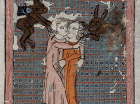
What Have Historians Been Arguing About... gender and sexuality
ArticleClick to view -

Cunning Plan 191: diving deep into ‘history from below’ with Year 8
ArticleClick to view -

Decolonising sources: helping Year 9 pupils critically evaluate colonial sources
ArticleClick to view -

Podcast Series: Confronting Controversial History
Multipage ArticleClick to view -
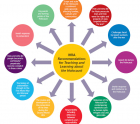
How ‘good’ are Key Stage 3 textbooks in supporting the teaching of the Holocaust?
ArticleClick to view -

Telling difficult stories about the creation of Bangladesh
ArticleClick to view -

Historical thinking and art education in Canada’s era of societal reckoning
ArticleClick to view -

Integrating the historical Holocaust
ArticleClick to view -
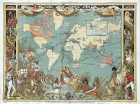
Navigating the ‘imperial history wars’
ArticleClick to view -

Helping Year 9 to engage effectively with ‘other genocides’
ArticleClick to view -
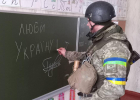
Teaching about the Russian invasion of Ukraine and events happening there
ArticleClick to view -

Decolonise, don’t diversify: enabling a paradigm shift in the KS3 history curriculum
ArticleClick to view -

Transatlantic slavery – shaping the question, lengthening the narrative, broadening the meaning
ArticleClick to view -

What Have Historians Been Arguing About... migration and empire
ArticleClick to view -

Moving Year 9 towards more complex causal explanations of Holocaust perpetration
ArticleClick to view -
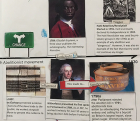
Unravelling the complexity of the causes of British abolition with Year 8
ArticleClick to view -

What have historians been arguing about... decolonisation and the British Empire?
ArticleClick to view -

Family stories and global (hi)stories
ArticleClick to view


